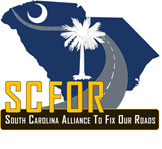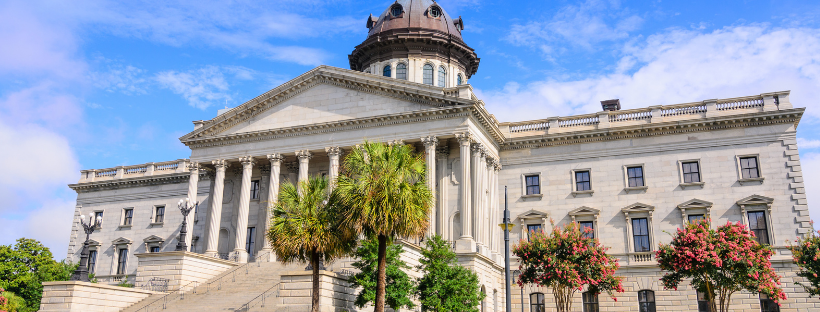The SC House and Senate have approved the conference committee report on the FY23-24 budget (H.4300). The spending plan passed both chambers on June 14 and was sent to the Governor for approval.
A few key highlights from the FY23-24 budget include income tax cuts, increases in reserves, raises for state employees and teachers, investments in economic development, workforce, and resiliency efforts.
When it comes to roads and bridges, the spending plan includes new allocations to address litter and a boost for county road programs.
SCDOT will receive an $8 million allocation for litter pickup.
County road programs will also benefit, with a $20 million allocation to boost County Transportation Committees (CTCs).
In addition, one-time funding has been provided for various local projects listed below:
- Chester County – Lighting Safety Upgrades: $450,000
- City of Columbia – Assembly St. Railroad Grade Separation Project: $10 Million
- City of Columbia – Beltline Blvd Redevelopment Projects: $2 Million
- City of Columbia – Williams Street Gateway: $7 Million
- City of Conway – Carolina Bay Construction: $677,000
- City of Easley Traffic Congestion Mitigation: $2 Million
- City of Sumter North Mainstreet Corridor Improvements: $1 Million
- Devine Street Corridor and Accessibility: $1.5 Million
- Dorchester County – Pedestrian Crossing for Bacons Bridge Road: $2.2 Million
- Elevate SC-22 Over Waccamaw River: $30 Million
- Highway 90 Improvements and Expansion: $5 Million
- Lexington County – Local Stormwater Management: $200,000
- Pickens County – Highway 183: $10 Million
- Southern Evacuation Lifeline Permitting and Engineering: $5 Million
- Town of Hilton Head Island Independent Bridge Replacement Study: $300,000
- Town of Summerville – Central Ave. Pedestrian Safety Sidewalk: $400,000
The FY23-24 budget maintains the recurring $120 million allocation to SCDOT (established in 2022) to match new federal dollars coming to the state through the Infrastructure Investment & Jobs Act (IIJA).
Governor McMaster issued 11 vetoes on June 20, none of which impacted these allocations to roads.
The FY23-24 budget goes into effect on July 1, 2023.  It is important to remember that general funds (state budget dollars) are not the primary revenue source for transportation infrastructure in South Carolina. Instead, revenues from driver and vehicle-related fees are dedicated to roads and bridges.
It is important to remember that general funds (state budget dollars) are not the primary revenue source for transportation infrastructure in South Carolina. Instead, revenues from driver and vehicle-related fees are dedicated to roads and bridges.
The state’s predominant funding source is the 28.75 cents per gallon motor fuel user fee applied to all gasoline and diesel purchases made in South Carolina.
Other revenue streams include the former vehicle “sales tax” of 5% of the purchase price (capped at $500) of a new vehicle, biennial vehicle registration fees, various driver’s license fees/penalties, out-of-state vehicle transfer fees (new residents transferring their vehicle registration from another state pay a one-time $250 fee), and road use fees on commercial vehicles.


